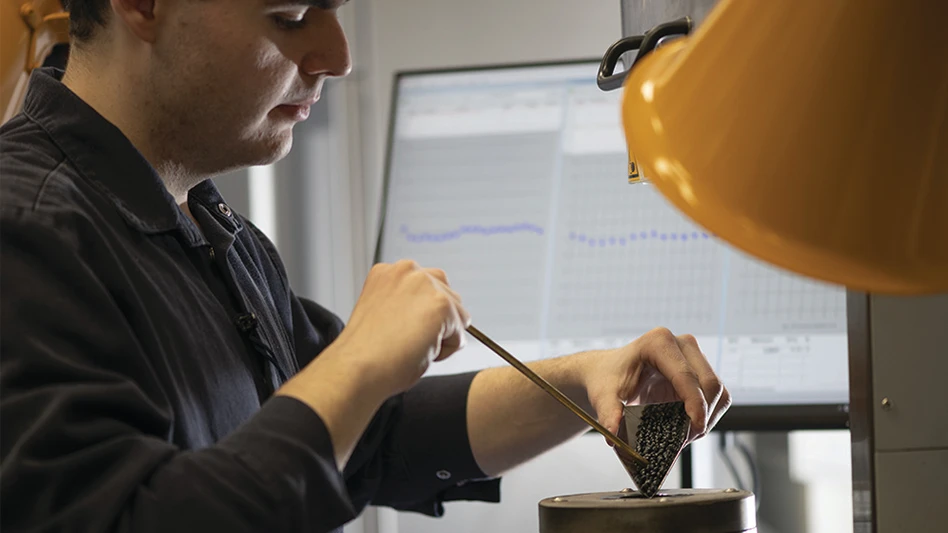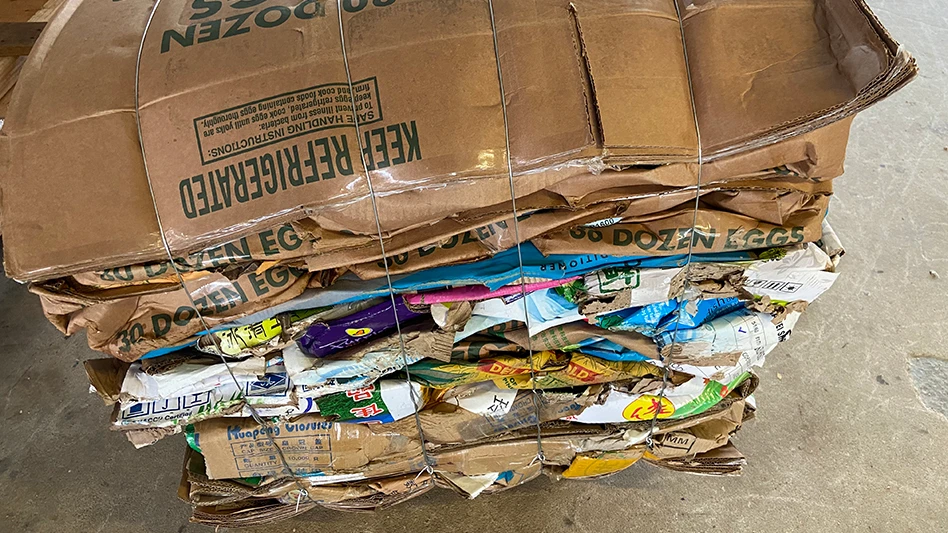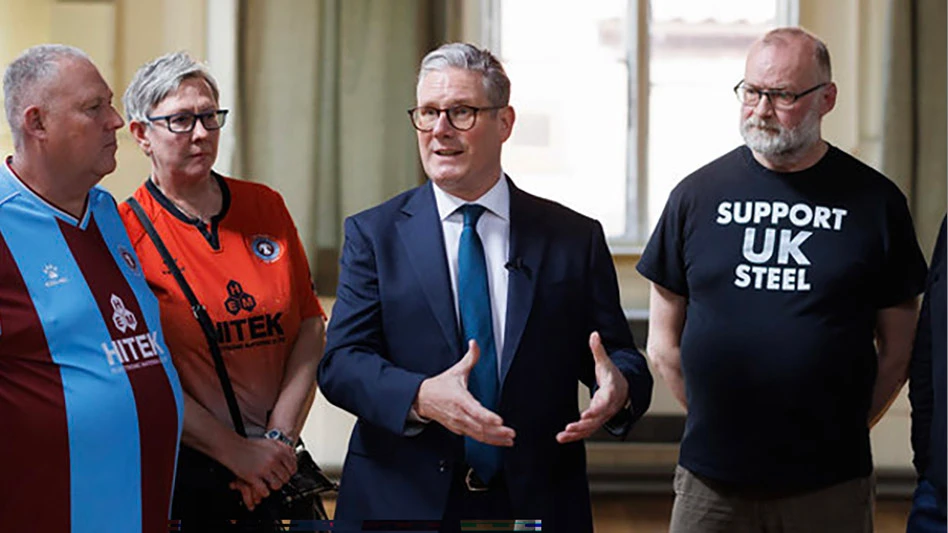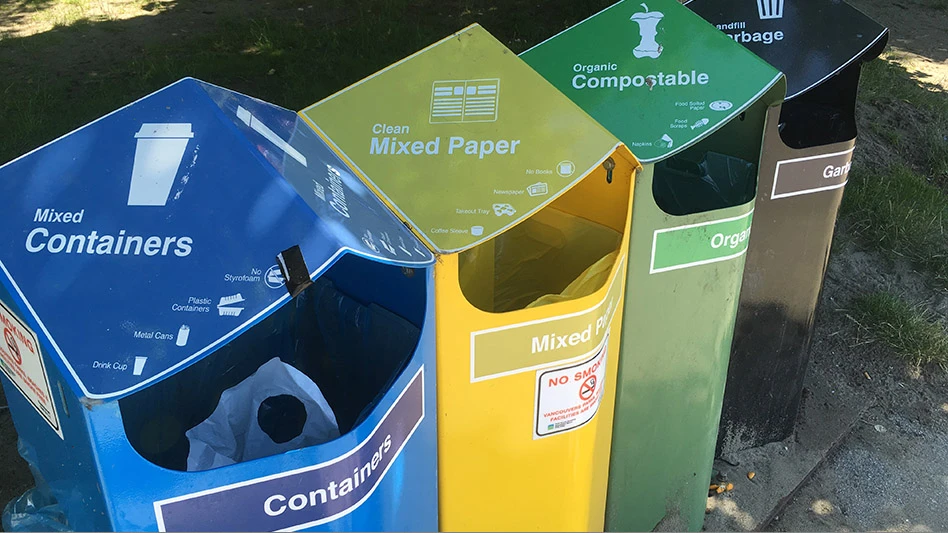 In an industry that is constantly evolving, it is common for recycling company owners to want to invest in the latest and greatest equipment. Advancements in technology help to introduce faster, stronger and smarter machines into the market. But while the new touchscreens and shiny buttons look nice, they do not always offer more benefits than those features of an earlier model.
In an industry that is constantly evolving, it is common for recycling company owners to want to invest in the latest and greatest equipment. Advancements in technology help to introduce faster, stronger and smarter machines into the market. But while the new touchscreens and shiny buttons look nice, they do not always offer more benefits than those features of an earlier model.
“Advancements in manufacturing are not always advancements,” says Cory Tomczyk, president and owner of iRow, a waste and recycling collection company in Mosinee, Wis.
Tomczyk, who also serves as president-elect of the Paper Stock Industries (PSI) chapter of the Institute of Scrap Recycling Industries Inc. (ISRI), has been buying used balers for more than two decades. He runs a used baler in his operations, but he mostly buys balers for his customers. Tomczyk says he has purchased more than 20 used balers, generally vertical press balers, for customers over the years.
He primarily shops used, he says, because he likes to save money, which he definitely has done. Tomczyk predicts he has saved “thousands and thousands” of dollars over the years by buying used balers.
Tomczyk explains, “When you look at the cost of a new vertical press, and it is over $10,000, if I can find the shell of one in a metals scrap yard and put a couple grand of parts and pieces into it, I can save $5,000 easily on just one baler.”
He also works with the mindset that newer does not always equate to better. Tomczyk’s favorite baler at his waste and recycling collection company is a used 1972 American Baler single-ram horizontal baler that he bought from a equipment dealer in St. Louis. The baler is attached to iRow’s shredding system and is used exclusively for paper, Tomczyk says.
Whether a baler was built in 1972 or 2014, the basic task that the machine is performing hasn’t changed much, he says. Therefore, he says he does not see the need to buy something new for the simple fact that it is new.
“I’ve had people take out perfectly operating balers for no good reason other than they thought it was old, so they got a new one that lights up when it’s full. It still does the same job,” Tomczyk says. “There are things in that 1972 baler that are vastly different than what they build now, but it’s still taking things and squeezing them, and that’s all I need it to do.”
He continues, “It does amaze me how people will look at a baler and say, ‘It’s 25 years old and making some nice bales.’ But they get rid of it. If you want something pretty, paint it.”
The longtime buyer of used balers provides some tips for those interested in shopping used.
Dealers and sellers
Tomczyk purchased his first used baler in 1993 and since then he has built strong relationships with scrap sellers. He suggests forming ties with scrap yard workers as well as with used equipment sellers. Tomczyk buys the separate frames, parts and pieces and puts in the extra work to bring an old baler back to life.
Where the sellers see junk, Tomczyk sees potential. “A used equipment guy might look at that baler from 1972 and say, ‘Who’s going to buy that?’” Tomczyk says. “They don’t want to put the time and effort into it, but I will.”
There are used equipment dealers who have “outstanding rebuild departments and a wealth of knowledge” that Tomczyk recommends buyers reach out to when confused. J-Mec, Lake Mills, Wis., a leading distributor, installer and service provider of waste and recycling equipment has been that go-to source for Tomczyk when he has questions, he says.
Tomczyk also spends quite a bit of time searching for used equipment websites on the Internet. While he does not get the face-to-face connection that he has with the local scrap and used equipment sellers, he says he finds many parts online.
In 2005, when a computer processing unit, an Allen Bradley SLC 50, stopped working in his 1972 baler, Tomczyk says he learned that the baler manufacturer had quit providing support for that older model. He then looked online for a replacement for the computer, which manages the sequence of events that make up a baler’s cycle, and found a program reader on eBay.
After contacting a nearby professional who writes programs for mechanical equipment, Tomczyk says the man copied the sequence of events and got the baler running again. That entire process was still much cheaper than buying a brand new machine, he points out.
“An electrician reinstalled the computer, so now it is a 1972 baler with a 2005 brain. It’s beautiful and runs every day. It’s my favorite baler,” Tomczyk says.
He recommends buying used balers that still have parts available in the market. Tomczyk says he is not afraid to manufacture baler parts if needed, however, and he has done just that by asking local machine shops to copy a specific part.
Skills and sefety
While recyclers can use several outlets when searching for a used baler, Tomczyk stresses the importance of understanding at least three key components about a baler before starting the shopping process.
First, anyone considering buying used balers must have someone on staff who is a good welder, Tomczyk says. Steel does wear, but it can be repaired by welding different parts and pieces together, he says. Being able to reweld cracked frames is a necessary skill to have when buying used.
“You can reweld steel if something is really badly cracked and put new steel in,” Tomczyk explains. “Steel hasn’t changed that much. If the frame is true and the welder is good, you’re fine there.”
Tomczyk also advises buyers to ensure they are familiar with a baler’s hydraulic system. The “heart and soul of the machine,” Tomczyk says understanding the hydraulic system is imperative.
Guaranteeing valves work and testing pumps using a hydraulic test bench to find out what they are producing in terms of pressure are good places to start, Tomczyk suggests. If the hydraulic cylinder is leaking, iRow has someone rebuild it, Tomczyk says. The company also always replaces all hydraulic hoses on a machine, he says.
“You have hoses that last 15 years and never blow and some last a month, it depends on where the pressure points build,” Tomczyk says. “As a general rule, replace the hoses; odds are greatly increased that it is going to last longer.”
Finally, it is crucial that workers know how the baler’s electronics and safety features function, he says. Tomczyk and his team replace all safety interlocks on each machine, which is cheaper than having an accident later, he says.
“You need to be able to understand the reason for safety interlocks on equipment and how to make sure they are functioning properly. If you don’t do that, nothing else matters,” Tomczyk says. “If you don’t understand the electronics or how to make safety features work again, then you’re going to have to hire someone.”
However, he cautions that hiring someone else to do a job that you should already know how to do takes away from the initial purpose of buying used anyway. “If you’re going to hire someone to do it, you might not end up saving money, and you might end up with something that’s not quite right,” he says.
Tomczyk continues, “Understanding baling and how balers work is an art in itself. If you have a good understanding of that, you might find an older baler that might work just as good, or in some instances better, than new ones.”
Used preferred
Tomczyk has purchased some baler failures that he couldn’t fix. He says he bought a few vertical frames, inspected, rebuilt and repainted them only to have the baler’s back crack from being stressed. These failures, however, did not thwart his thriftiness.
Tomczyk recognizes that the machines have advanced—new valves can increase baler speed and updated user interfaces can improve interaction—but he prefers to buy used. And while new purchases come with new warranties, Tomczyk says his assurance in his iRow team is enough warranty.
“My warranty is my confidence in my maintenance shop and my guys,” he says.
The author is associate editor of Recycling Today magazine and can be reached at mworkman@gie.net.

Explore the February 2014 Issue
Check out more from this issue and find your next story to read.
Latest from Recycling Today
- Commentary: How EPR is transforming the packaging industry
- Acerinox names new North American Stainless CEO
- Greenwave closes 2024 books with red ink
- Steel Dynamics nets $217M on record shipments
- Massive Chinese steelmaking rebound recorded in March
- LME looks into sustainable metal pricing
- OnePlanet Solar Recycling closes $7M seed financing round
- AMCS launches AMCS Platform Spring 2025 update






